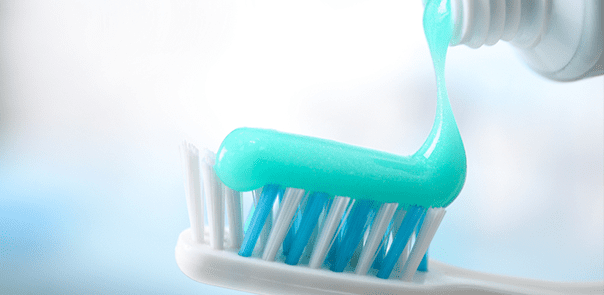
We all want strong, healthy teeth and it’s no secret that good oral hygiene goes a long way in ensuring optimal dental health.
But did you know that fluoride can reduce the number of cavities an individual will develop in their life by about half? Find out more about this mineral, and how it could help to strengthen your smile…
What is fluoride?
Fluoride is a naturally occurring mineral that can be found in most water sources. It helps to reduce the number of cavities that develop in the teeth by making the enamel more resistant to the acid attacks of plaque. Plus, it promotes the remineralisation of the teeth.
How does it help teeth, exactly?
The outer layer of the teeth, known as the enamel, is actually made from mineral crystals that are closely packed together. These minerals are damaged or lost when plaque builds up on the teeth. The bacteria in plaque feed on sugars in the mouth and produce acid that disolves the minerals in the tooth enamel. It is possible, however, to remineralise the teeth by balancing mineral loss with adequate amounts of minerals, such as fluoride, calcium and phosphate. Fluoride specifically strengthens the teeth when it is swallowed or applied to the teeth, making it less likely that acids are able to damage the enamel. When applied to the teeth (in the form of toothpaste or a professional treatment), fluoride works by speeding up the remineralisation process and reduces the damage from acids in the mouth.
What happens if I have a deficiency?
The most common sign that you or your child may have a fluoride deficiency is tooth decay. When plaque builds up on the teeth, bacteria feeds on sugars on the mouth and produces acids that attack the enamel. If you don’t have enough fluoride, your teeth will be less resistant to this damaging acid, and your overall oral health may be compromised.
Where can I get fluoride from?
Most water sources contain some fluoride, while some foods, like potatoes, shellfish, and grapes, also contain the mineral. These sources, however, are not always sufficient when it comes to strengthening and remineralising the teeth. For this reason, we offer topical fluoride applications, which can be utilised from the age of three upwards. When applied to the teeth, fluoride can arrest very early decay.
Fluoride can also be found in some toothpastes. Children’s toothpaste typically contains between 400 and 500 parts per million, while adult’s toothpaste generally contains between 1000 and 1100 parts per million. It’s important to note that fluorinated toothpastes should not be used on children under the age of two, and only a smear should be used on children between the ages of two and six. From the age of six, it’s fine for your little one to use full strength fluoride toothpaste.
Is it safe?
Fluoride is very safe and effective when it is used correctly. We recommend that you come in for a consultation so that we can determine if a fluoride treatment is suitable for you or your child. We can also recommend an appropriate toothpaste, based on your specific needs. Remember that children under the age of six are likely to swallow toothpaste instead of spitting it out after brushing, so make sure that you supervise any use of fluoride toothpaste when your child is very young.
Where can I get fluoride products?
We will advise you on where to find the best fluoride toothpastes, should you require assistance. We also stock a fluoride mouthwash, which will strengthen your teeth. We suggest that you use this mouthwash only if your dentist has recommended it, as it will benefit certain patients only.
For more information on fluoride treatments, please don’t hesitate to get in touch with us. We provide dental care to the whole family, and cater for people of all ages, including children, teenagers, adults, and the elderly. We want all of our patients to feel as comfortable as possible in our facility so if you’re feeling anxious about visiting us, do let us know. If you’re visiting with children, take a look at our various children’s activities that they can enjoy while they wait for their appointment.
